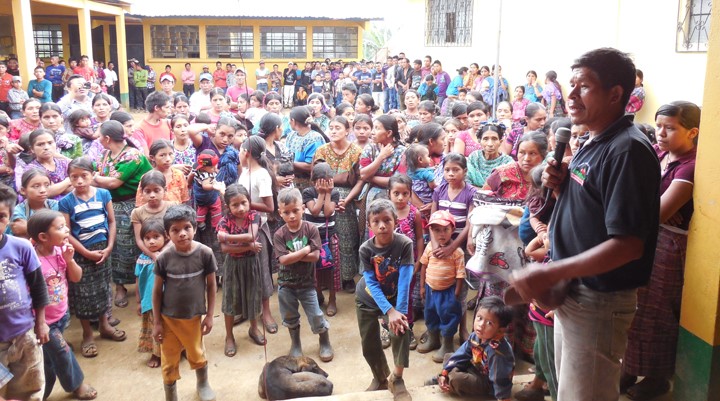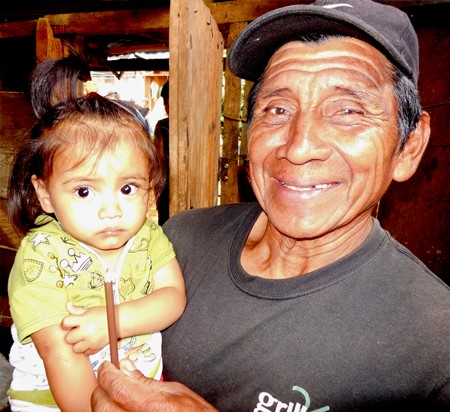Chris Augustine and Kaitlin Schrup recently joined Aspect -- Chris in our Portland office and Kaitlin in our Seattle office. Here are five questions we asked to get to know them better.
Chris Augustine, Senior Hydrogeologist
1. Where are you from? If you’re not from the Pacific Northwest, what brought you here? I grew up in the Blue Ridge Mountains near Asheville, North Carolina. After grad school, I decided that I wanted to live someplace where I could enjoy the same outdoor adventures as North Carolina and set my sights on the Cascades and moved across country to Ashland, Oregon. I eventually moved to the other end of I-5 to Portland, Oregon and have lived here over 16 years now.
2. What inspired you to pursue hydrogeology? What made you curious about it? I started off as a chemical engineering major but switched focus after my first geology class. It was a science that played to my strengths and interests and seemed to require a lot of time outdoors doing “field work” – code for hiking around mountains and banging on rocks, which was more exciting than Chemistry Lab. Once I entered grad school I got “red rock” fever and began studying volcanic processes of the volcanic front in southwestern Guatemala for my thesis. I spent most of my class time studying environmental-focused courses like hydrogeology, geochemistry, and shallow subsurface and borehole geophysics.
3. What do you like best about your area of expertise? What excites you and keeps you motivated? My favorite types of projects are ones that require looking at problems in a unique way or require integrating many different solutions. Coming up with value-added or innovative solutions to these sometimes complex technical or regulatory challenges for my clients keeps my interests piqued.
4. What do you like to do when you aren’t working? At the moment, my focus is on keeping up with my 4-year-old son and his fixation on everything Legos. I look forward to getting back in the routine of camping, cycling, mountain biking, snowboarding and whitewater kayaking as he grows and can explore the Cascades and the Pacific Northwest outdoors with his Dad, the weekend warrior.
5. Where in the world would you like to travel next? I am hoping to visit South America again. I really want to see parts of the Andes in Chile and Argentina. There are also a lot of classic whitewater destinations in Chile like the Futaleufu and phenomenal national parks that draw me to there. Closer to home I would like to get out to the Steens Mountains - even though it seems a world away!
Kaitlin Schrup, GIS Analyst
1. Where are you from? In my formative years, I grew up in Central Eastern Washington on the Confederated Tribes of the Colville Reservation. My family has a long tradition in serving Native American tribes. This tradition engraved the importance of preserving natural resources, tribal culture, and sovereignty at an early age. In middle school, I moved to Western Washington on the Enumclaw plateau. In college, I lived near the Blue Ridge Parkway in North Carolina, and studied abroad in the Middle East, which profoundly changed my life. I can still speak a little broken Arabic and Swahili. After college, I moved back home to the beautiful Pacific Northwest to work in the non-profit sector.
2. What inspired you to pursue Geographical Information Systems (GIS)? My first love was computerized drafting and design. However, I felt at the time policy was more of an effective method to make a difference in the world, so I graduated with my undergrad in political science with a focus on environmental politics. I wanted a method to combine my love of design and policy, and I found that with GIS and cartography. The study and practice of GIS focuses on holistic thinking to tell a story through visualizations. Maps are amazing at telling stories and influencing policy.
3. What do you like best about your area of expertise? What excites you and keeps you motivated? My passion and commitment are to serve my community through developing meaningful GIS solutions and geospatial technology to assist people to solve their problems and discover insightful information to accomplish their goals. I strive and love to continuously learn in general. The GIS and geospatial technology sector are continuously being innovated with new ideas and technological application. My Master’s program was focused on the development of geospatial technology, so I am always trying to learn more about online map application programming. One of my favorite topics to ponder is “Big Data” and the implications that technology place upon our society.
4. What do you like to do when you aren’t working? When I am not working, I constantly seek out my next adventure or working on my passion project. I love to travel and learn about new cultures and customs. I am a retired competitive swimmer and enjoy snorkeling/scuba diving in warm waters. I enjoy exploring the Pacific Northwest with loved ones. During the warmer months, I enjoy camping and hiking. During the colder months, I head up to the mountains for snowboarding or snowshoeing. I also love to run and hanging out with my two little beautiful nieces. I am also a huge animal lover, so I am always seeking out someone to talk with about his or her pets.
5. Where in the world would you like to travel next? This is a hard question. I would like to travel to either the Serengeti or Chile. One of my dreams would be to see the great migration along the Serengeti. Hiking within the Torres del Paine National Park in Chile’s Patagonia region has been on my bucket list. Also, I have been fascinated with Easter Island since I was a little girl. Plus Chile has great food and beverages.





























